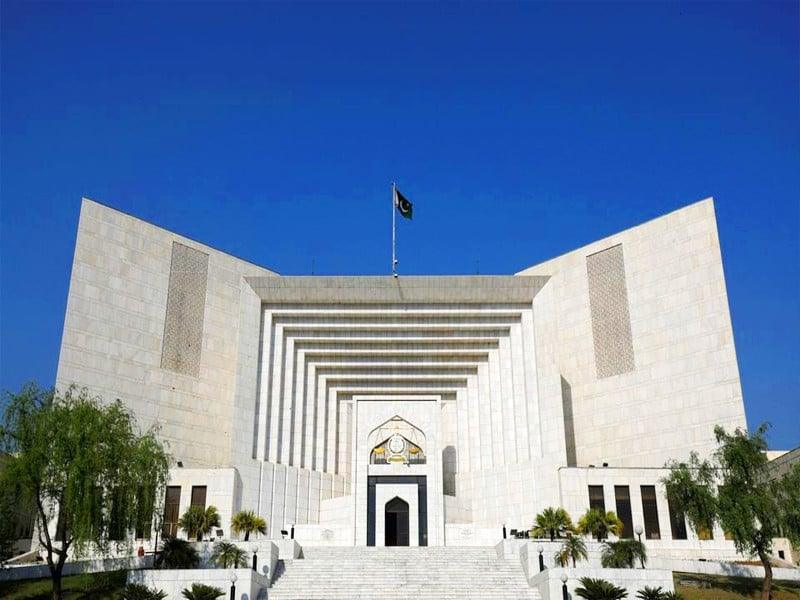The constitutional bench of the Supreme Court resumed its hearing on the appeals against the trial of civilians before the military courts, during which the judge Musarat Hilali questioned the difference between the 2014 APS attack and the demonstrations of 9 may.
The seven -member bench, led by judge Ameenuddin Khan, heard arguments of Khawaja Ahmad Hussain, reported judge (R) Jawad S. Khawaja.
During the procedure, Hussain argued that “ordinary civilians do not fall under the army law, which applies to Pakistani military staff and civilian employees of the armed forces”.
Bench examines the equity of military tests
Judge Hassan Azhar Rizvi asked whether the army law applies to attacks against the bases. Judge Hilali added: “The APS attack was an act of terrorism, while May 9 was a manifestation. What differentiates civilians involved?”
Khawaja Hussain explained that the APS attack had led to the constitutional amendment of the 21st, allowing military trials of terrorism officials.
“On May 9, demonstrators should be tested, but not in the military courts,” he said. Judge Amicin Khan acknowledged that the court had the power to examine any legislation contradicting the Constitution.
Judge Musarrat Hilali pointed out: “All the children killed during the APS attack were civilians.”
“Can a victim be a just judge?” The lawyer disputes military trials
During the procedure, Khawaja Ahmad Hussain referred to the declaration of May 9 published by the ISPR, the media wing of the Pakistani army. He said: “ISPR published a statement on May 15 concerning the events of May 9. Do you have objections to the declaration?”
The lawyer replied: “I have no objection to the first part of the declaration. However, the declaration says that there is irrefutable evidence of the incidents of May 9. How can a military trial be just after a Such a statement? If the army is a party in the case, how can it ensure justice? “
Judge Musarrat Hilali pointed out that the lawyer’s arguments concerned the substance of the case, while Judge Aminuddin Khan advised the lawyer to limit his arguments to legal issues.
The lawyer argued: “A victim cannot carry out a impartial trial.”
“Where should foreign future spies be judged?” Request courtyard
Judge Hassan Azhar Rizvi asked: “If a foreign spy is captured in the future, where should be led?”
The lawyer replied: “Such cases should be treated by the anti -terrorist courts.”
Judge Rizvi smiled and noticed: “Oh really?”
Judge Amicin Khan underlined an inconsistency in the arguments, declaring: “It is strange to declare a zero law and not avenue while saying that special remedies should always be available”.
The judge Muhammad Ali Mazhar asked: “Can the armed forces of Pakistan use article 2 (1) (d) (2) of the law of the army in the future?”
The lawyer replied: “The reality is that in the future, this section cannot be applied. I would like to continue with my arguments.”
Comparison with the case of Kulbhushan Jadhav
The discussion also discussed the Indian spy Kulbhushan Jadhav, judge Muhammad Ali Mazhar wondering how the reduction in article 2 (1) (d) (ii) of the army law could have an impact on future espionage cases.
“If we invalidate this provision, where are the trials for foreign spies conducted?” Asked Judge Ricevi. Hussain replied that such cases could be tried in the anti -terrorist courts. Judge Ricevi, smiling, replied: “Very good then.”
Judge Amicin noted that it was contradictory that the petitioners sought to eliminate the provision of the army law while pleading for special exemptions.
Concerns concerning the procedures of military courts
Hussain argued that trials on the field of the General Court (FGCM) do not allow the accused to choose their legal representation, declaring: “In the FGCM, a lawyer is only appointed with the approval of the chief of the army. “
Judge Hilali asked if the lawyer presented arguments for the accused who were not before the court.
Judge Mandokhail also referred to previous decisions, noting that the FB Ali affair confirmed the key provisions of the army law and that the 21st constitutional amendment was decided by a complete bench of 17 judges.
The bench then adjourned the hearing until Monday, February 3.




